China: Competence Center 4.0 opened
The "German Teaching Method Competence Center" (GTMCC), a cooperative venture with the Institute for Training and Careers (GBB), opened at Shunde Polytechnic College at the end of 2023. The role of the Competence Center is to shape transformation processes for Vocational Education and Training 4.0.
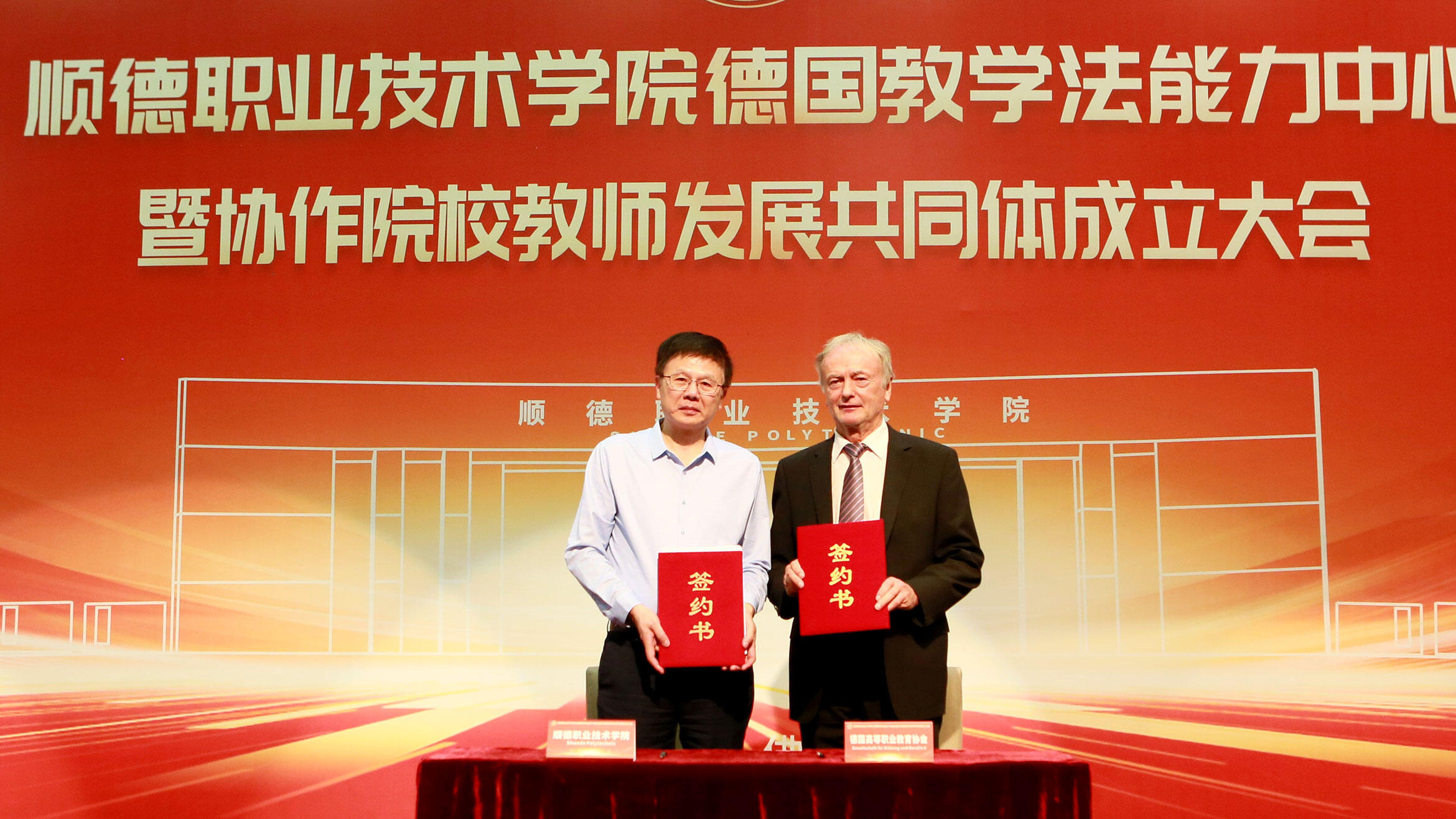
Formal opening ceremony of the German Teaching Method Competence Center (GTMCC)
The aim is for the German Teaching Method Competence Center (GTMCC) in Guangdong Province to train "master" teaching staff who will then coach further college teachers (transfer aspect) as well as supporting the establishment and further development of competence centres at other locations (adaptation and localisation aspect).
The GTMCC is directed at a wide-ranging target group. Thirty cooperating schools, which officially joined the GTMCC on 9 November 2023 under the lead management of Shunde Polytechnic College, represent an initial success of the development and transfer concept.
These thirty cooperating schools include ten higher vocational colleges and nineteen intermediate vocational schools from the provinces of Heilongjiang, Guizhou, Gansu, Xinjiang, Hubei, Hunan and Guangdong. The plan is for thirty teachers to undergo advanced training over the next two years at Shunde Polytechnic College and at each of the cooperating schools.
The goal of the GTMCC is to utilize new subject-specific content and innovative concepts in didactic methodology to help adapt Chinese VET to the new learning culture 4.0.
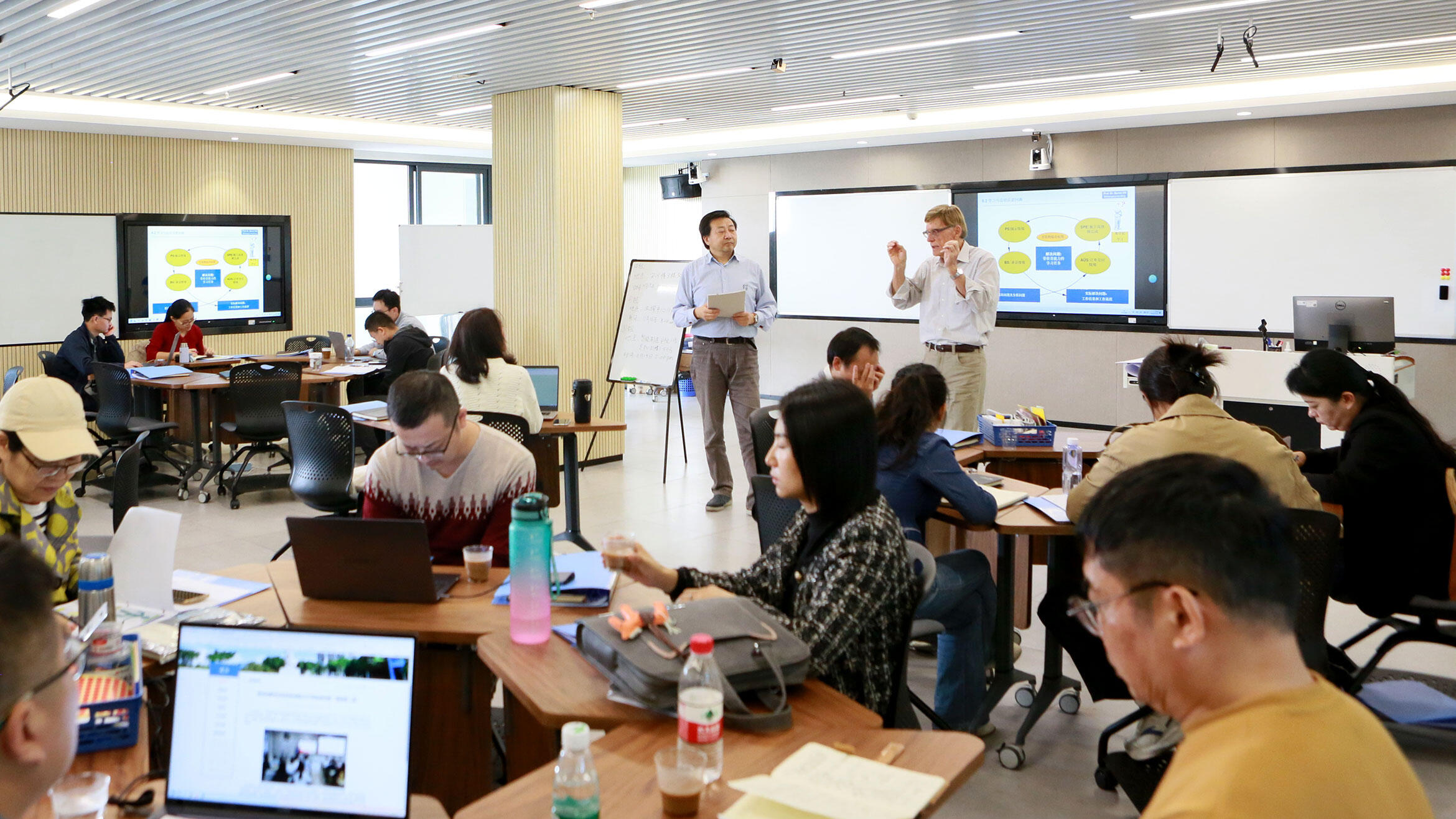
Teaching staff, standing right: lecturer Professor Dr. Bernd Ott, standing left: Chengchuang Ni, interpreter
Training of the new master teachers
The "master teacher concept" consists of three one-week advanced training modules, each of which is followed by a practical and application phase lasting several months (sandwich principle). The learning phases are as follows.
Problem-based and employment-oriented learning: planning, execution and monitoring; the holistic imparting of theoretical and practical content including via blended learning formats.
Process-oriented and competency-based learning: structuring cooperation arrangements between learning venues in a didactic and methodological way and acting as a learning coach to support such arrangements at schools and companies.
Self-directed and team-oriented learning: applying new (digital) learning media autonomously, developing methodological and presentation techniques for transfer workshops and piloting these in practice (train-the-trainer).
The concept takes account of the key objectives of the 2019/2020 reform plan for Chinese vocational education and training. These include increasing and expanding the development level of VET at the intermediate stage with the aim of securing a future supply of skilled workers (1+X vocational certificate) and the promotion of higher stage VET in order to pursue the further development of vocational colleges and specialist areas at "double high level" (Shuanggao) and of practically oriented higher VET schools at bachelor's level.
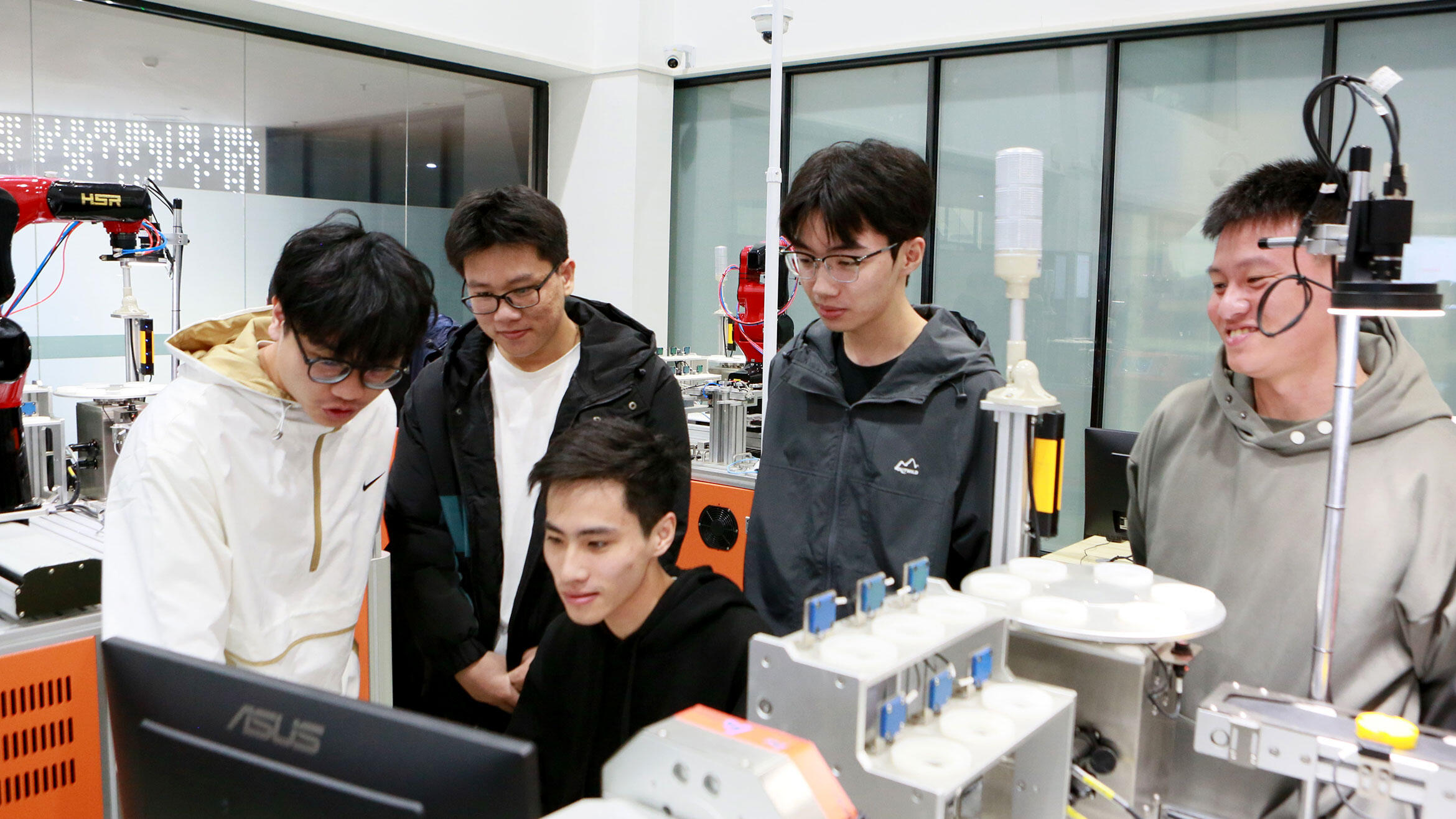
Development of teaching methods and presentation techniques in a teaching workshop
Organisation of the Competence Center 4.0
Shunde Polytechnic College was founded in 1999. It currently has nine faculties in which around 16,000 students are trained by 650 lecturers. College management encourages an open education system aimed at the integration of learning and working in competence centres.
Project direction and project management take place via close cooperation between the Polytechnic College in Shunde and the Institute for Training and Careers in Dortmund. Advanced training for teachers and evaluation research are conducted by Professor Dr. Bernd Ott and by Chengchuang Ni in his capacity as interpreter.
The main tasks relating to the advanced training of teaching staff are the planning and implementation of face-to-face workshops, learning process support (coaching in online meetings) and learning process evaluation. Relevant development tasks arise both from the intended Chinese emphasis of learning culture 4.0 at skilled worker level and via the competency-based curricular development and implementation in employment-aligned and process-oriented learning settings at bachelor's level.
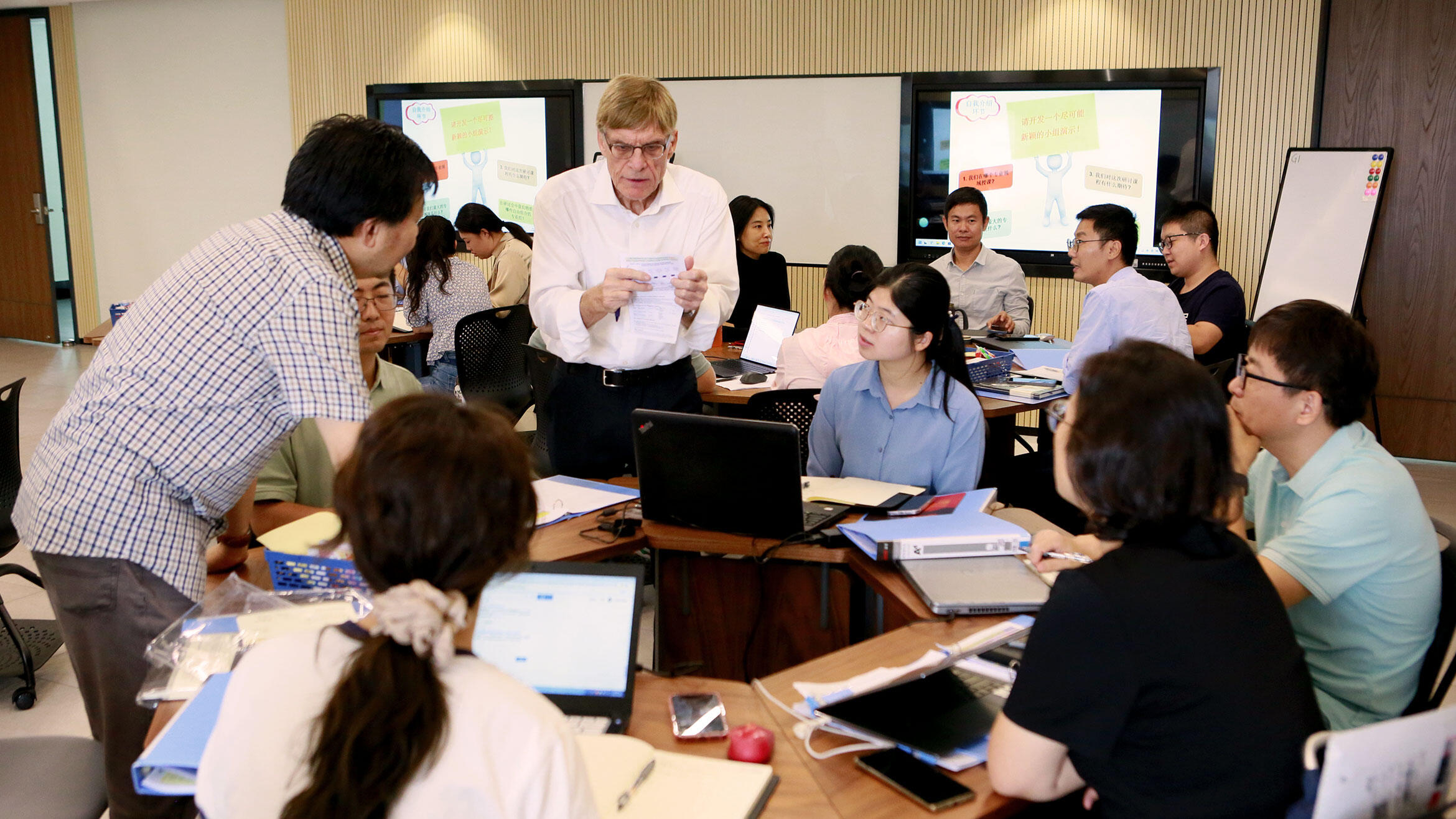
Group work to develop teaching methods and presentation techniques
10 years of cooperation between the GBB and Shunde Polytechnic College
Back in 2014, the GBB organised a three-month period of continuing education for 20 Chinese vocational school teachers in Dortmund . A seminar on "employment-oriented teaching" also took place at this time.
One of the participants in this seminar was a teacher from the field of mechatronics, who took the "master teacher concept" back to China and immediately organised an advanced teacher training programme at Shunde Polytechnic College. The GBB and the teacher then worked together to adapt the "master teacher concept" to Chinese requirements.
From 2016 onwards, this provided a foundation via which more than 200 lecturers at Shunde Polytechnic College have undergone advanced training to date. Over twenty master teachers (multipliers) were certified during this period. A link is provided below to the iMOVE Success Story.
These successful activities over the past ten years have now created a basis for the German Teaching Method Competence Center (GTMCC), the opening of which was marked by a formal ceremony.
As the Chinese contracting authority of the GTMCC, Shunde Polytechnic College bears the entire costs. Organisational duties in Germany are assumed by the Institute for Training and Careers (GBB). Professor Dr. Bernd Ott conducts the operational tasks for the face-to-face workshops and online meetings.
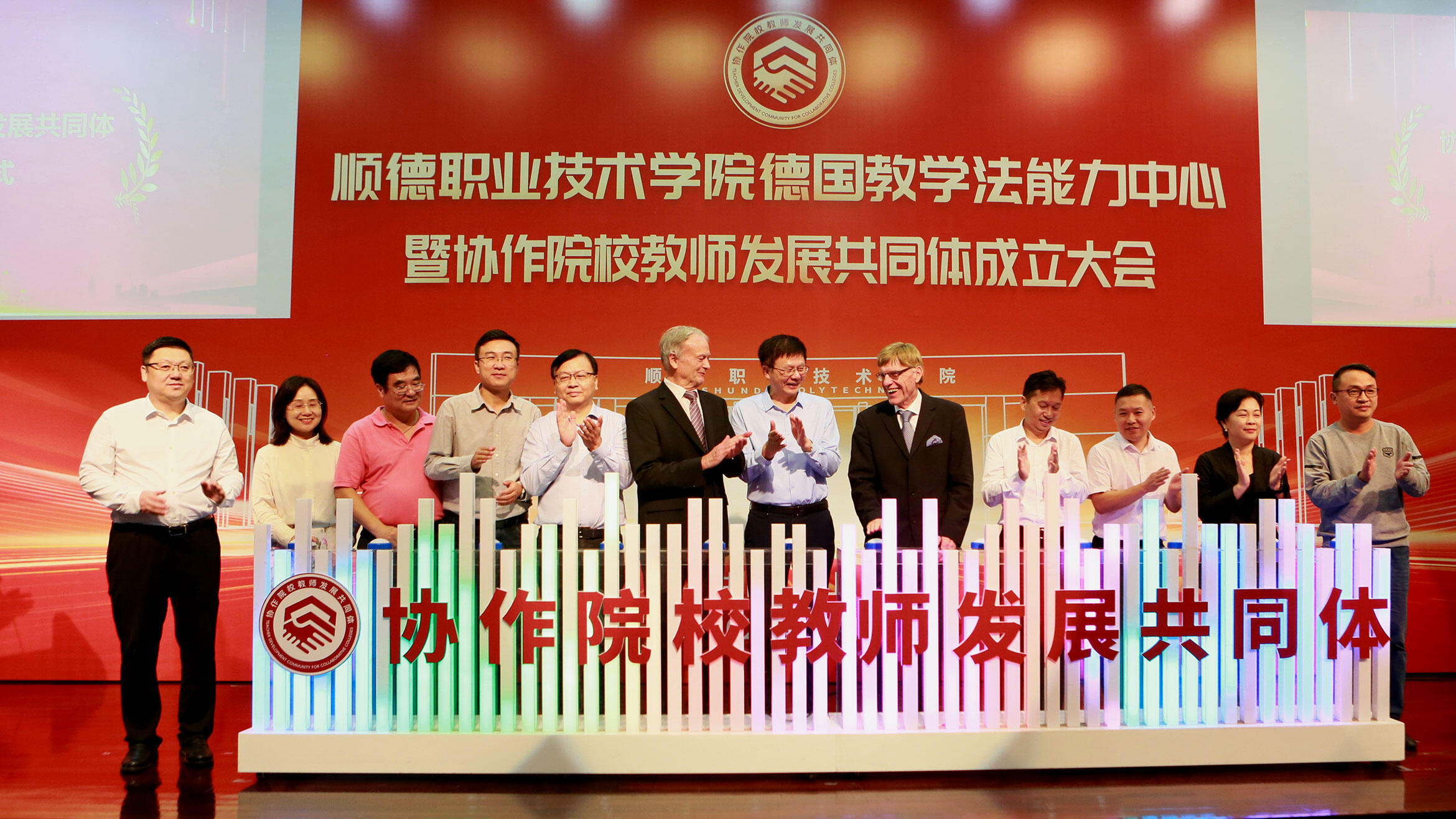
Formal opening ceremony of the German Teaching Method Competence Center
Tips from the GBB on business activities in China
The Chinese market is enormous, and interest in learning culture 4.0 continues unabated. An intensive debate on vocational training measures at bachelor's level is currently ongoing in China. Germany remains a preferred business partner for VET. This means that the prerequisites for business activity in China are favourable.
The GBB states a number of important points which a German company needs to take into consideration for business activity in China.
- Good cooperation partners at a local level are an important prerequisite for conducting projects.
- Flexibility, staying power and good informal contacts are necessary in order to be successful.
- Development and advanced training concepts frequently need to be altered situationally and must also be adjusted over time to meet regional conditions.
- Of course, the wishes of the Chinese partners need to be incorporated.
- An office or other type of local presence is very helpful.
- Good trainers and specialist lecturers play a major role in the success of an education and training measure.
- Interest in the country and in its people provide credibility in terms of perception by the Chinese partners and is vital for motivating German project participants.
Links
To the iMOVE Practice Report of 23.08.2018, China: Training to support learning culture 4.0
The project in the Chinese press
Participating organisations on the German side
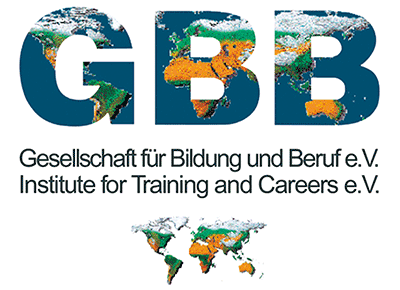
Institute for Training and Careers GBB
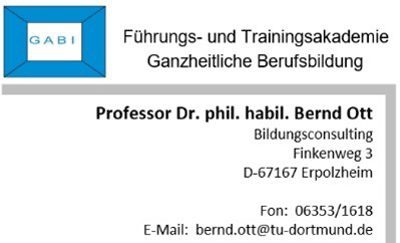
Management and Training Academy
for Holistic Education and Training
Professor Dr. Bernd Ott
Education and training consulting

